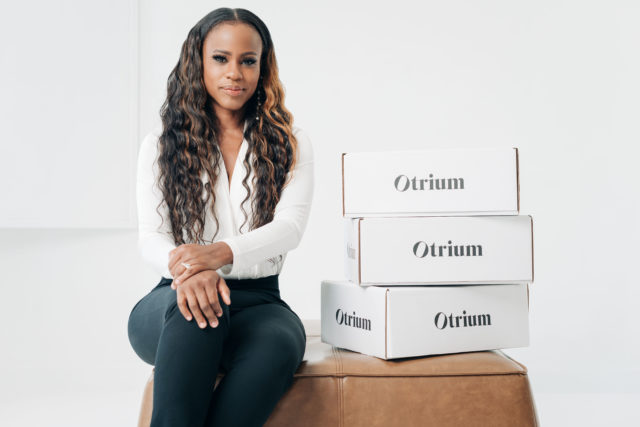Zuhairah Washington is fashioning a new look for the business world.
Founded in 2015 as a response to the fashion industry’s abundance of unsold inventory, online fashion marketplace Otrium has expanded into the U.S. under the supervision of Washington, its current president and COO. The alumnus has written articles for Forbes and Harvard Business Review advocating for women in business and worked for Expedia Group and Uber before joining Otrium in 2021.
Washington spoke with the Daily Bruin’s Leydi Cris Cobo Cordon about how creativity and intersectionality have played a role in her career.
This interview has been edited for length and clarity.
Daily Bruin: What did it mean to you to pivot into a fashion company like Otrium? Were there any unique opportunities presented by this position as opposed to what you’ve previously done?
Zuhairah Washington: It’s funny because when I was a student, I used to always say, “(What) career or industry am I going to get into?” I was a political science and public policy (student), and ever since graduate school, I’ve been industry agnostic. I’ve worked in travel, real estate, transportation and now in fashion, so I would say the fashion element of it was the cherry on top because I’ve always seen myself as being someone who’s creative. But the job and the specific opportunity was really just based on my past experience working in high growth, venture-backed companies and particularly marketplaces, meaning companies that connect consumers and some type of supplier or brand.
[Related: Q&A: Law school alumnus Dellara Gorjian speaks on becoming TikTok star ‘legalbaddie’]
DB: You mentioned that you consider yourself a creative person. How would you say that manifests itself in your business career?
ZW: I feel like sometimes in business, your creativity can be either unleashed or not. For me, it shows up a lot in creative problem solving and creative approaches. It’s also the compassion to be able to be open to all different types of people showing up as they are (and) not being as rigid in thinking. Personally, I’ve always had an interest in the arts, whether that be singing, dancing (and) acting or in visual arts.
Fashion is the world’s largest art form. It’s the way that many of us express ourselves daily, whether it’s in micro ways and Mark Zuckerberg (being) like, “I don’t care, I’m just going to wear the black shirt and the jeans,” or like me – I really love big nice earrings. Creativity and business for me go hand-in-hand, but they show up a little differently than the textbook creative. I’m not starting meetings singing, but it’s more in how I approach problems or how I even approach my own career.
DB: You previously wrote an article about how managers can support women of color in the workplace. Do you have any advice for women of color in business?
ZW: I’ll say it through the prism of – I have a daughter. She’s 3 years old, and I’m often reminded how much power and strength there is in women and particularly women of color given our lineage. She reminds me (of) how simple we come out, and the world does a lot to try to re-engineer (us) to make us fit into a particular mold. So, I would just say there’s nothing more you have to do to be worthy, to be prepared, to step into what already is a lineage of excellence.
A lot of times, the world – whether you’re a woman or a woman of color – it’s about women needing to do other things to become or to meet the bar. And the reminder that, in fact, we’re consistently raising the bar because of our lived experience (and) because of our celestial lineage. By definition, I’ve found that we’re asking different questions, we’re pushing the envelope, we’re bringing perspective. And so, I would just try to stay as close to that kernel and nugget of pure truth as possible.
[Related: Q&A: UCLA alumnus’s skin care company focuses on wellness, mental health advocacy]
DB: What role do activism and personal values play in your career?
ZW: It’s critical. Every role that I’ve had has had a bigger “why” than just making money. That’s important to me because I spend so much of my time (and) energy at work. I want to make sure that I’m having a broader impact on the world. From a moral perspective, (I) was shaped while I was at UCLA, but as a professional, it’s the filter that I use to determine if a job is worth my time, energy or talent. Like, “What is the purpose? What are we solving for? How are we making the world better through this core activity?”


Comments are closed.